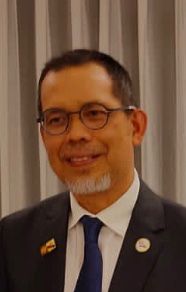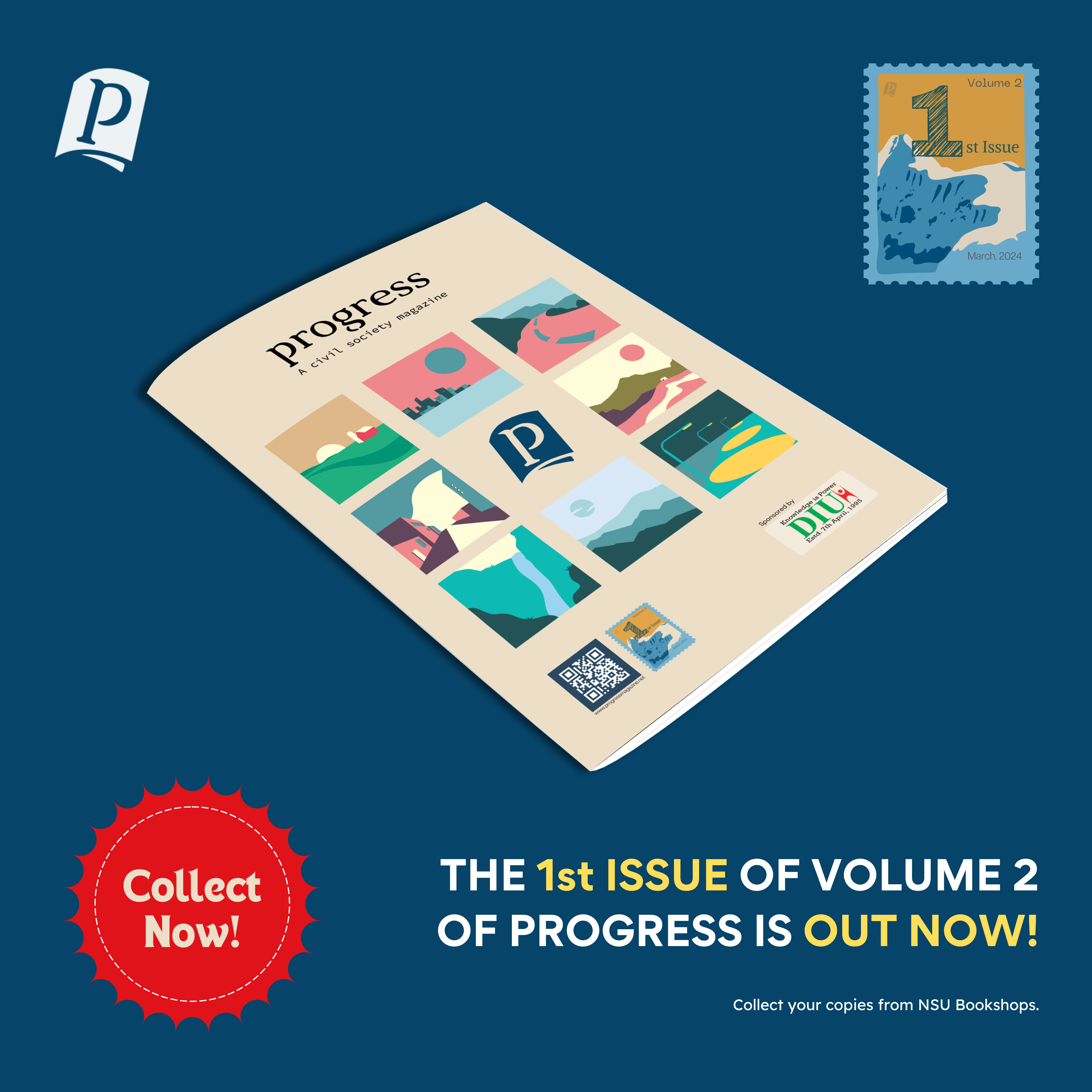Progress:
Excellency, thank you very much for agreeing to be interviewed by Progress Magazine. The first question to you – With the exception of religious commonality, what other avenues have bonded Brunei and Bangladesh so closely over the years?
High Commissioner:
The close bond between Brunei and Bangladesh has been fostered through various avenues over the years. Here are some of the key areas that have strengthened our bilateral relations:
Bangladesh was one of the earliest countries to recognize the independence of Brunei in 1984. The two countries established diplomatic relations on May 5, 1984, just four months after Brunei proclaimed independence.
The exchange of visits between the leaders of both countries has significantly strengthened our relations. Her Excellency Sheikh Hasina, the Prime Minister of Bangladesh, visited Brunei in April 2019, while His Majesty, the Sultan & Yang DiPertuan of Brunei Darussalam, undertook a state visit to Bangladesh in October 2022.
Brunei and Bangladesh have engaged in bilateral cooperation in various sectors. They have signed several Memorandums of Understanding (MOUs) covering areas such as energy, agriculture, fishery, livestock, youth and sports, culture and arts, education, finance, and more. These agreements have facilitated collaboration and joint initiatives between the two countries.
The trade volume between Brunei and Bangladesh has grown significantly in recent years. From 2020 to the end of 2022, the trade volume increased to more than 30 million US dollars annually. Efforts have been made to enhance trade cooperation, particularly in the halal industry, and explore opportunities for improved business-to-business relations and collaboration.
Brunei serves as a significant labour market for Bangladesh, with approximately fluctuating between 10,000 to 25,000 workers from Bangladesh employed in various sectors in Brunei. Bangladeshi workers have made valuable contributions to the development of Brunei, particularly in the construction sector. This mutually beneficial relationship has helped accelerate development activities in Brunei while providing an opportunity for Bangladeshi workers to earn foreign currency and contribute to Bangladesh’s economic development.
Promoting people-to-people contacts has been emphasized to strengthen ties between Brunei and Bangladesh. Efforts have been made to enhance interaction and engagement at various levels between government agencies and facilitate increased communication between business people from both countries. These interactions help build understanding, trust, and long-term collaboration.
Brunei and Bangladesh have nurtured a strong friendship through diplomatic relations, high-level exchanges, bilateral cooperation in various sectors, growing trade relations, labour market engagement, and people-to-people contacts. The two countries continue to work towards deepening their partnership for mutual benefit and prosperity.
Progress:
The labour force is a strength for Bangladesh. Would you please be able to elaborate on the “MoU on Employment and Recruitment of Bangladeshi Workers” between Bangladesh and Brunei?
High Commissioner:
The “MoU on Employment and Recruitment of Bangladeshi Workers” between Bangladesh and Brunei focuses on facilitating the employment and recruitment process of Bangladeshi workers in Brunei. The MoU aims to streamline and regulate recruitment procedures to ensure transparency, fairness, and protection of workers’ rights.
The MoU addresses various aspects of the recruitment and employment of Bangladeshi workers in Brunei. It depicts the responsibilities and obligations of both countries in the recruitment process, including the role of the government agencies involved, recruitment agencies, and employers in Brunei.
It highlights the need for ethical recruitment practices and emphasizes protecting workers’ rights throughout the employment cycle. It includes provisions for the pre-departure training workers to ensure they are well informed about their rights, job responsibilities, and living conditions in Brunei.
It also in general, addresses issues such as employment contracts, wages, working hours, accommodation, healthcare, and dispute resolution mechanisms. It aims to ensure that workers are treated fairly and provided decent working and living conditions while employed in Brunei.
By signing this MoU, both Bangladesh and Brunei demonstrate their commitment to promoting ethical recruitment practices and safeguarding the welfare of Bangladeshi workers. It serves as a framework for cooperation between the two countries in managing labour migration and maintaining a mutually beneficial relationship in the employment of Bangladeshi workers in Brunei.
Overall, the MoU on Employment and Recruitment of Bangladeshi Workers strengthens the bilateral relations between Bangladesh and Brunei by promoting responsible labour migration and ensuring the well-being and rights of Bangladeshi workers seeking employment opportunities in Brunei.
Progress:
Why is Brunei so keen on participating in the global halal food market, and how might Bangladesh play a role?
High Commissioner:
Brunei has shown keen interest in participating in the global halal food market for several reasons. Firstly, Brunei has a predominantly Muslim population, and there is a strong emphasis on adhering to halal principles in the country. By participating in the global halal food market, Brunei aims to cater to the needs of its population and provide them with a wide range of halal-certified products.
Secondly, Brunei recognizes the economic potential of the halal food industry. The global halal market is a rapidly growing sector, with increasing demand from Muslim consumers worldwide. With its commitment to halal standards, Brunei sees an opportunity to tap into this market and generate economic growth through halal food production, processing, and exports.
Bangladesh can play a significant role in Brunei’s global halal food market pursuit in this context. Bangladesh has a large Muslim population and a thriving agricultural sector. The country has the potential to produce a diverse range of halal-certified food products, including meat, poultry, seafood, fruits, and vegetables. Bangladesh’s expertise in agriculture and its halal certification capabilities can contribute to the supply chain of halal food products for Brunei.
Collaboration between Brunei and Bangladesh in the halal food industry can involve various aspects. Bangladesh can explore opportunities to export halal-certified agricultural products to Brunei, meeting the country’s demand for miscellaneous food items. It can include establishing trade partnerships, promoting bilateral investments, and facilitating technology transfer in the agricultural and food processing sectors.
Additionally, Brunei and Bangladesh can support each other in enhancing their halal certification standards, infrastructure, sharing knowledge and best practices. This collaboration can help both countries ensure the authenticity and credibility of our halal products, which is crucial for accessing and competing in the global halal food market.
Brunei can strengthen its position in the global halal food market by leveraging Bangladesh’s agricultural potential, halal certification expertise, and collaborative efforts. The partnership between Brunei and Bangladesh in the halal food sector can be mutually beneficial, promoting trade, economic growth and providing high-quality halal food options to Muslim consumers worldwide.
Progress:
Brunei is rich in energy resources. Does Brunei have plans to be of help to Bangladesh, given the latter’s recent scarcity?
High Commissioner:
Brunei and Bangladesh renewed the MOU on the Supply of LNG in October last year (2022). Both countries are committed to strengthening energy cooperation, specifically in liquefied natural gas (LNG).
The renewal of the MOU signifies Brunei’s continued willingness to supply LNG to Bangladesh. It demonstrates a mutual recognition of the potential benefits and shared interests in energy cooperation between Brunei and Bangladesh.
It reaffirms Brunei’s position as an energy supplier and is committed to fostering closer ties and cooperation between the two countries. Of course, it likely involves discussions on the terms, pricing, LNG supply volumes, and long-term energy security considerations.
It is a significant development for Bangladesh. It can help meet Bangladesh’s growing energy demands and contribute to its energy diversification goals, besides LNG being a cleaner and more environmentally friendly alternative to traditional fossil fuels.
Progress:
Excellency, could you briefly discuss the bilateral trade relations between Brunei and Bangladesh?
High Commissioner:
Certainly! The bilateral trade relations between Brunei and Bangladesh have grown and present further collaboration opportunities. While the trade volume between the two countries has historically been relatively low, efforts have been made to enhance trade relations and explore the untapped potential.
There has been a notable increase in bilateral trade between Brunei and Bangladesh in recent years. The trade volume reached more than 30 million US dollars annually from 2020 to the end of 2022, marking a significant rise compared to previous years. This growth indicates a positive trend and highlights the potential for expanding economic ties between the two countries.
The trade between Brunei and Bangladesh encompasses various sectors and products. Brunei predominantly exports diesel and Liquified Petroleum Gas (LPG). On the other hand, Bangladesh’s exports to Brunei have consisted of products such as food items, beverages, leather, and vegetables.
To further strengthen bilateral trade relations, both countries have taken steps to enhance communication and engagement between business people. Increased interaction and collaboration at various levels, including government agencies and private sectors, are encouraged to facilitate trade and investment.
Moreover, as mentioned earlier Brunei has shown interest in exploring trade cooperation in specific sectors, particularly the halal industry. Given Bangladesh’s agricultural potential, there is room for collaboration in halal food production, processing, and exports. Bangladesh can potentially export halal-certified agricultural products to Brunei, catering to the needs of Brunei’s predominantly Muslim population.
Efforts have also been made to establish business-to-business relations and encourage investments. Bangladesh is welcome to consider investing in Brunei’s economic diversification activities, such as the food, agriculture, and aquaculture industries.
While there is room for further growth and diversification, the bilateral trade relations between Brunei and Bangladesh have shown positive developments. The increased trade volume, exploration of trade cooperation in specific sectors like halal food, and emphasis on business engagement all contribute to strengthening economic ties and potential mutual benefits for both countries.
Progress:
For the readers of Progress, could you share your experience of being close to the Sultan on his recent visit to Bangladesh?
High Commissioner:
Observing protocol is an essential aspect of diplomatic visits. As the Brunei High Commissioner to Dhaka, my role would include understanding and adhering to the established protocol guidelines when coordinating and facilitating the visit of His Majesty. It would involve working closely with Brunei and Bangladesh’s protocol offices to observe proper protocols and etiquette throughout the visit.
While the level of proximity to His Majesty during his visit would depend on the specific protocol arrangements, as a Brunei diplomat, I would have the opportunity to interact with the delegation and provide support from a diplomatic standpoint. It may involve coordinating meetings, briefings, or events and liaising between the two countries officials.
Maintaining proper protocol etiquette and professionalism is crucial during such visits to ensure the diplomatic relationship between Brunei and Bangladesh is respected and nurtured. While the exact level of proximity may vary, the focus would be on fulfilling the responsibilities of a diplomat to strengthen bilateral relations, foster cooperation, and represent the interests of Brunei in Bangladesh.
It is important to note that the specific details of protocol arrangements and the level of proximity to high-ranking officials would be determined by the established guidelines and procedures followed by the respective countries.
As the Brunei diplomat to Bangladesh, being within reach of His Majesty during his visit would be an honour and an opportunity to foster closer bilateral relations, deepen mutual understanding, and explore avenues for collaboration and cooperation between the two countries. The visit would be seen as a symbol of the close ties and mutual respect shared between Brunei and Bangladesh.
Progress:
Excellency, we would like to know about your daily routine as a diplomat in Bangladesh.
High Commissioner:
As a diplomat to Bangladesh, my daily routine would involve a variety of diplomatic responsibilities and activities. While the specific schedule may vary depending on the priorities and events at hand, here is just a general outline of what my daily routine as a diplomat in Bangladesh might entail:
Begin the day by reviewing diplomatic cables, news updates, and briefings from the High Commission staff and government officials. Stay informed about the latest developments in both Brunei and Bangladesh and international affairs.
Engage in meetings with Bangladeshi government officials, diplomatic counterparts, and representatives from international organizations. Discuss bilateral issues, exchange views on shared interests, and explore opportunities for collaboration.
Participate in cultural events, ceremonies, and celebrations promoting cultural exchange and strengthening connections between Brunei and Bangladesh. Attend and host receptions, dinners, and cultural showcases to foster goodwill and enhance mutual understanding.
Engage in discussions and negotiations related to bilateral cooperations, trade partnerships, and investment opportunities between Brunei and Bangladesh. Meet with business leaders, industry representatives, and potential investors to promote economic ties and explore areas of collaboration.
Provide consular services and assistance to Bruneian citizens residing in or visiting Bangladesh. Handle passport and visa matters, facilitate consular visits, and address any consular issues or emergencies that may arise.
Engage with the media, give interviews, and issue press statements to promote Brunei’s interests, highlight achievements, and enhance the public’s understanding of Brunei in Bangladesh. Use social media platforms and other communication channels to effectively communicate Brunei’s policies and initiatives.
Attend receptions, conferences, and seminars to network with influential figures, business communities, academics, and civil society representatives. Strengthen existing relationships and establish new connections to further the interests of Brunei and foster partnerships.
Oversee the day-to-day operations of the embassy, including managing the embassy staff, financial matters, and administrative tasks. Ensure the smooth functioning of the embassy and compliance with diplomatic protocols and procedures.
Prepare reports and other official documents to update the Ministry of Foreign Affairs in Brunei on the diplomatic activities, developments, and policy recommendations relevant to Bangladesh.
Allocate time for personal and professional development, including research, studying Bangladesh’s political and economic landscape, and staying updated on diplomatic practices and international relations.
It is important to note that this is a general outline, and my daily routine may vary depending on the specific priorities, events, and circumstances at a given time.











